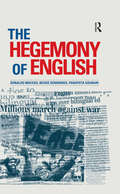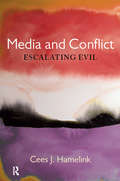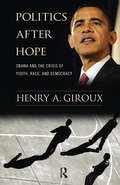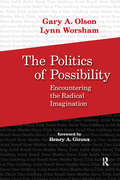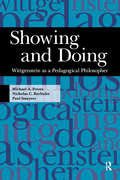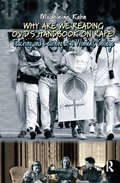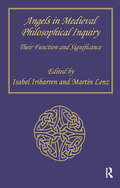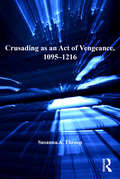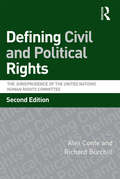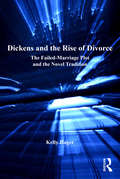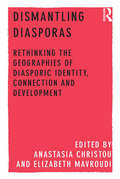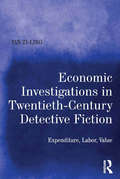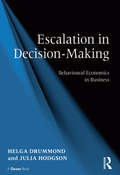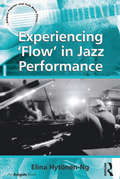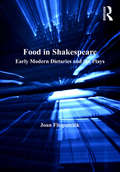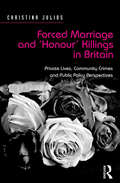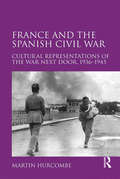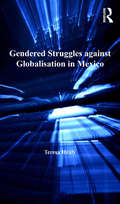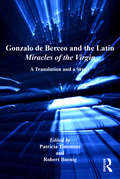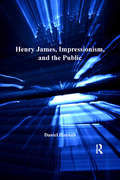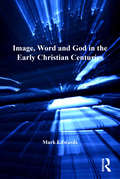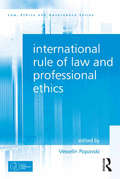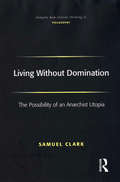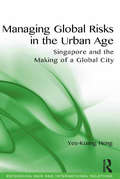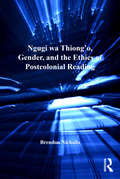Special Collections
Benetech’s Global Certified Accessible Titles
Description: Benetech’s GCA program is the first independent third-party EPUB certification to verify ebook accessibility. By creating content that is born accessible, publishers can meet the needs of all readers. Learn more: https://bornaccessible.benetech.org/
- Table View
- List View
Hegemony of English
by Donaldo Macedo and Panayota Gounari and Bessie Dendrinos'[P]erhaps the best analysis of the English-only movement in the US and the ramifications worldwide of language policies favouring English ...It displays a dazzling grasp of the many meanings of language and the politics that underlie language policy and educational discourse.' Stanley Aronowitz, City University of New York 'In the present political climate, racism and classism often hide behind seemingly technical issues about English in the modern world. The Hegemony of English courageously unmasks these deceptions and points the way to a more humane and sane way to discuss language in our global world.' James Paul Gee, University of Wisconsin, Madison The Hegemony of English succinctly exposes how the neoliberal ideology of globalization promotes dominating language policies. In the United States and Europe these policies lead to linguistic and cultural discrimination while, worldwide, they aim to stamp out a greater use and participation of national and subordinate languages in world commerce and in international organizations such as the European Union. Democracy calls for broad, multi-ethnic participation, and the authors point us toward more effective approaches in an increasingly interconnected world.
Media and Conflict
by Cees Jan HamelinkThe world faces explosive conflicts about the distribution and scarcity of resources, about ethnicity and religion, and about the risks of urban life. These conflicts can easily spiral out of control toward mass slaughter-an evil of huge proportions that is often escalated by the media. What should be done to prevent this lethal trend? We need to understand how the 'spiral of escalation' works. How do media create anxiety, provide space for agitation, and disconnect people? Three approaches to the prevention of mass mediated aggression are proposed in this book: an early warning system for incitement to mass destruction, the invitation to disarming conversations in urban space, and the teaching of 'compassionate communication' to children and others. Alertness to the recurrence of collective violence is urgently needed not only in unstable and poor societies, but also in established democracies. Ordinary people can be incited to the mass slaughter of other ordinary people anywhere. Understanding the media's role in this and acting to prevent it are key goals of this book.
Politics After Hope
by Henry A. GirouxAs the new administration moved beyond its first year in office, Obama's politics of hope increasingly has been transformed into a politics of accommodation. To many of his supporters, his quest for pragmatism and realism has become a weakness rather than a strength. By focusing on those areas where Obama grounded his own sense of possibility, Giroux critically investigates the well-being and future of young people, including the necessity to overcome racial injustices, the importance of abiding by the promise of a democracy to come, and the indisputable value of education in democracy. Giroux shows why considerations provide the ethical and political foundations for enabling hope to live up to its promises, while making civic responsibility and education central to a movement that takes democracy seriously.
Politics of Possibility
by Henry A. Giroux and Gary A. Olson and Lynn WorshamIn the probing interviews in this vibrant new book, eminent scholars struggle with some of the most crucial issues facing contemporary intellectuals. Poststructuralist philosopher Judith Butler discusses the pain of rigorous intellectual work, saying that it is necessarily extremely hard labor, as she examines the intersection of discourse and political action. Award-winning filmmaker, philosopher, and social theorist David Theo Goldberg reviews his life s work, especially on issues of racism. Literary critic and feminist philosopher Avital Ronell sets out to disrupt the standard logic of signification, to force readers into fresh ways of perceiving a subject at hand. Postcolonial theorist Homi Bhabha discusses how critical literacy is intimately connected to the question of democratic representation, and he elaborates on how cultural difference can lead to a politics of discrimination. And neo-Marxist cultural critic Slavoj i ek takes readers on an exhilarating journey through a wide range of critical subjects."
Showing and Doing
by Paul Smeyers and Michael A. Peters and Nicholas C. BurbulesThree prominent Wittgenstein scholars introduce the broad educational significance of Ludwig Wittgenstein's work to a wider audience of educational researchers and practitioners through provocative, innovative, and playful readings of his work. They vividly demonstrate the influence of his thinking and its centrality to understanding our contemporary condition. Wittgenstein fundamentally shaped contemporary theories of language, representation, cognition, and learning. The book also traces the "pedagogical turn" of his thinking during the period from 1920 to 1926. What is most radical about Wittgenstein's later work is that it suggests learning and initiation into practices are fundamental to understanding his philosophy. The book not only provides a new and fresh interpretation of Wittgenstein's thought but also explores a new way of thinking about education as a way of revealing the educational dimension of philosophical problems.
Why are We Reading Ovid's Handbook on Rape?
by Madeleine KahnWhy Are We Reading Ovid's Handbook on Rape? raises feminist issues in a way that reminds people why they matter. We eavesdrop on the vivid student characters in their hilarious, frustrating, and thought-provoking efforts to create strong and flexible selves against the background of representations of women in contemporary and classical Western literature. Young women working together in a group make surprising choices about what to learn, and how to go about learning it. Along the way they pose some provocative questions about how well traditional education serves women. Equally engaging is Kahn's own journey as she confronts questions that are fundamental to women, to teachers, to students and to parents: Why do we read? What can we teach? and What does gender have to do with it?
Angels in Medieval Philosophical Inquiry
by Martin LenzThe nature and properties of angels occupied a prominent place in medieval philosophical inquiry. Creatures of two worlds, angels provided ideal ground for exploring the nature of God and his creation, being perceived as 'models' according to which a whole range of questions were defined, from cosmological order, movement and place, to individuation, cognition, volition, and modes of language. This collection of essays is a significant scholarly contribution to angelology, centred on the function and significance of angels in medieval speculation and its history. The unifying theme is that of the role of angels in philosophical inquiry, where each contribution represents a case study in which the angelic model is seen to motivate developments in specific areas and periods of medieval philosophical thought.
Crusading as an Act of Vengeance, 1095–1216
by Susanna A. ThroopOnly recently have historians of the crusades begun to seriously investigate the presence of the idea of crusading as an act of vengeance, despite its frequent appearance in crusading sources. Understandably, many historians have primarily concentrated on non-ecclesiastical phenomena such as feuding, purportedly a component of "secular" culture and the interpersonal obligations inherent in medieval society. This has led scholars to several assumptions regarding the nature of medieval vengeance and the role that various cultures of vengeance played in the crusading movement. This monograph revises those assumptions and posits a new understanding of how crusading was conceived as an act of vengeance in the context of the twelfth and early thirteenth centuries. Through textual analysis of specific medieval vocabulary it has been possible to clarify the changing course of the concept of vengeance in general as well as the more specific idea of crusading as an act of vengeance. The concept of vengeance was intimately connected with the ideas of justice and punishment. It was perceived as an expression of power, embedded in a series of commonly understood emotional responses, and also as an expression of orthodox Christian values. There was furthermore a strong link between religious zeal, righteous anger, and the vocabulary of vengeance. By looking at these concepts in detail, and in the context of current crusading methodologies, fresh vistas are revealed that allow for a better understanding of the crusading movement and those who "took the cross," with broader implications for the study of crusading ideology and twelfth-century spirituality in general.
Defining Civil and Political Rights
by Alex Conte and Richard BurchillDefining Civil and Political Rights provides a comprehensive analysis and commentary on the decisions - technically known as views - of the United Nations Human Rights Committee, for use by human rights lawyers throughout the world. Each of the substantive rights and freedoms set out in the International Covenant on Civil and Political Rights is considered in detail, by analysis of final reviews and comments of the Human Rights Committee. This second edition has been thoroughly revised and updated to take account of recent jurisprudence on the Human Rights Committee. New material has been added based upon substantive areas of the committee's jurisprudence.
Dickens and the Rise of Divorce
by Kelly HagerQuestioning a literary history that, since Ian Watt's Rise of the Novel, has privileged the courtship plot, Kelly Hager proposes an equally powerful but overlooked narrative focusing on the failed marriage. Hager maps the legal history of marriage and divorce, providing crucial background as she reveals the prevalence of the failed-marriage plot in eighteenth- and nineteenth-century British novels. Dickens's novels emerge as representative case studies in their preoccupations with the disintegration of marriage, the far-reaching and disastrous effects of the doctrine of coverture, and the comic, spectacular, and monstrous possibilities afforded by the failed-marriage plot. Setting his narratives alongside the writings of liberal reformers like John Stuart Mill and the seemingly conservative agendas of Caroline Norton, Eliza Lynn Linton, and Sarah Stickney Ellis, Hager also offers a more contextualized account of the competing strands of the Woman Question. In the course of her revisionist readings of Dickens's novels, Hager uncovers a Dickens who is neither the conservative agent of the patriarchy nor a novelistic Jeremy Bentham, and reveals that tipping the marriage plot on its head forces us to adjust our understanding of the complexities of Victorian proto-feminism.
Dismantling Diasporas
by Elizabeth Mavroudi and Anastasia ChristouRe-energising debates on the conceptualisation of diasporas in migration scholarship and in geography, this work stresses the important role that geographers can play in interrupting assumptions about the spaces and processes of diaspora. The intricate, material and complex ways in which those in diaspora contest, construct and perform identity, politics, development and place is explored throughout this book. The authors ’dismantle’ diasporas in order to re-theorise the concept through empirically grounded, cutting-edge global research. This innovative volume will appeal to an international and interdisciplinary audience in ethnic, migration and diaspora studies as it tackles comparative, multi-sited and multi-method research through compelling case studies in a variety of contexts spanning the Global North and South. The research in this book is guided by four interconnected themes: the ways in which diasporas are constructed and performed through identity, the body, everyday practice and place; how those in diaspora become politicised and how this leads to unities and disunities in relation to 'here' and 'there'; the ways in which diasporas seek to connect and re-connect with their 'homelands' and the consequences of this in terms of identity formation, employment and theorising who 'counts' as a diaspora; and how those in diaspora engage with homeland development and the challenges this creates.
Economic Investigations in Twentieth-Century Detective Fiction
by Yan Zi-LingIn his study of Golden Age and hard-boiled detective fiction from 1890 to 1950, Yan Zi-Ling argues that these two subgenres can be distinguished not only by theme and style, but by the way they structure knowledge, value, and productive labour. Using the detective as a reference point and enactor of socially based interests, Yan shows that Golden Age texts are distinguished by their conservationism (and not only by their conservatism), with the detectives’ actions serving to stabilize institutions with specific ideological aims. In contrast, the criminal investigations of the hard-boiled detective, who is poorly aligned with institutions and strong interest groups, reveal the fragility of the status quo in the face of escalating cycles of violence. Key to Yan’s discussion are theories of exchange, value, and the gift, the latter of which he suggests is more akin to detective work than is wage labour. Analyzing texts by a wide range of authors that includes Arthur Conan Doyle, Agatha Christie, Dashiell Hammett, Raymond Chandler, Dorothy Sayers, Raoul Whitfield, George Harmon Coxe, and Mickey Spillane, Yan demonstrates that the detective’s truth-generating function, most often characterized as a process of discovery rather than creation, is in fact crucial to the institutional and class-based interests that he or she serves.
Escalation in Decision-Making
by Helga Drummond and Julia HodgsonWhen a venture seems to be faltering, do you persist and hope that things will get better or do you cut your losses? This may be one of the most important decisions business or project owners may ever have to make. Persistence involves the risk of throwing good money (or resources) after bad, but owners may feel they have too much invested to quit now. Escalation in Decision-Making reveals why social scientists believe that owners may not respond rationally to such predicaments. Instead of exiting when the odds are clearly stacked against them, they re-invest and end up compounding their losses - a phenomenon known as escalation of commitment. The authors, Helga Drummond and Julia Hodgson, also introduce the concept of entrapment, a variation whereby decision-makers passively drift towards insolvency as the cost of changing direction becomes too high. So: · what drives escalation? · why do some owners quit whilst others persist until the bailiffs arrive? · what can we learn from owners' mistakes? · what makes newcomers believe they can succeed where others are conspicuously failing? These questions of behavioural economics are answered using a narrative that analyses decisions made by market traders facing economic extinction. Many highly successful entrepreneurs started their careers in markets - it was once an almost guaranteed route to prosperity - now market traders are struggling to survive. Although the market traders featured are small entrepreneurs, the ubiquitous phenomenon of escalation at the heart of these stories is widely relevant to practitioners such as project managers in large organizations and to those responsible for managing risk in many situations. Rich in case studies involving real business decisions and dilemmas, Escalation in Decision-Making provides an accessible introduction to the application of theory against a background of growing interest in behavioural economics, now being researched and taught in univ
Experiencing 'Flow' in Jazz Performance
by Elina Hytonen-NgThe term 'flow' refers to experiences where the musician moves into a consciousness in which time seems to be suspended and perception of reality is blurred by unconscious forces. An essential part of the jazz tradition, which often serves as the foundation of the musician's identity, flow is recognised within the greater jazz community as a critical factor in accomplished musicianship. Flow as a concept is so deeply embedded in the scene that these experiences are not generally discussed. It contributes to the musicians' work motivation, providing a vital level of satisfaction and accomplishment. The power of the experience, consciously or unconsciously, has given rise to the creation of heroic images, in which jazz musicians are seen as being bold, yet vulnerable, strong and masculine, but still capable of expressing emotions. In this discourse, musicians are pictured as people constantly putting themselves on the line, exposing themselves and their hearts to one another as well as to the audience. Heroic profiles are richly constructed within the jazz scene, and their incorporation into narratives of flow suggests that such images are inseparable from jazz. It is thus unclear how far the musicians are simply reporting personal experience as opposed to unconsciously perpetuating a profoundly internalised mythology. Drawing on eighteen interviews conducted with professional jazz musicians from around the world, Elina Hytönen-Ng examines the fundamentals of the phenomenon of flow in jazz that has led to this genre's popularity. Furthermore, she draws on how flow experiences are viewed and constructed by jazz musicians, the meanings they attach to it, and the quality of music that it inspires.
Food in Shakespeare
by Joan FitzpatrickA study of common and exotic food in Shakespeare's plays, this is the first book to explore early modern English dietary literature to understand better the significance of food in Shakespearean drama. Food in Shakespeare provides for modern readers and audiences an historically accurate account of the range of, and conflicts between, contemporary ideas that informed the representations of food in the plays. It also focuses on the social and moral implications of familiar and strange foodstuff in Shakespeare's works. This new approach provides substantial fresh readings of Hamlet, Macbeth, As you Like It, The Winter's Tale, Henry IV Parts 1 and 2, Henry V, Titus Andronicus, Coriolanus, Pericles, Timon of Athens, and the co-authored Sir Thomas More. Among the dietaries explored are Andrew Boorde's A Compendyous Regyment or a Dyetary of Healthe (1547), William Bullein's The Gouernement of Healthe (1595), Thomas Elyot's The Castle of Helthe (1595) and Thomas Cogan's The Hauen of Health (1636). These dieteries were republished several times in the early modern period; together they typify the genre's condemnation of surfeit and the tendency to blame human disease on feeding practices. This study directs scholarly attention to the importance of early modern dietaries, analyzing their role in wider culture as well as their intersection with dramatic art. In the dietaries food and drink are indices of one's position in relation to complex ideas about rank, nationality, and spiritual well-being; careful consumption might correct moral as well as physical shortcomings. The dietaries are an eclectic genre: some contain recipes for the reader to try, others give tips on more general lifestyle choices, but all offer advice on how to maintain good health via diet. Although some are more stern and humourless than others, the overwhelming impression is that of food as an ally in the battle against disease and ill-health as well as a potential enemy.
Forced Marriage and 'Honour' Killings in Britain
by Christina JuliosThis book explores the contemporary phenomenon of forced marriage and 'honour' killings in Britain. Set against a background of increasing 'honour'-based violence within the country's South Asian and Muslim Diasporas, the book traces the development of the 'honour' question over the past two decades. It accordingly witnesses unprecedented changes in public awareness and government policy including ground-breaking 'honour'-specific legislation and the criminalisation of forced marriage. All of which makes Britain an important context for the study of this now indigenous and self-perpetuating social problem. In considering the scale of the challenge and its underlying causes, attention is paid to the intersections of gendered power structures that disadvantage female members of 'honour' cultures as well as feminist theories that seek to explain them. The book features five key case-studies of 'honour' killings and draws from a wide range of narratives including those of 'honour' violence survivors, grassroots service providers and legislators. Such myriad of perspectives reveals the complexity of the 'honour' issue and the deep ideological divisions that characterise it. With the UK's multiculturalist discourse unable to reconcile protecting patriarchal minority cultures with safeguarding gender equality and human rights, the book raises fundamental questions about the country's future direction. Following a long trend of state-sponsored integrationist policies, the government's response to the 'honour' question points decisively in the direction of a post-multicultural British nation.
France and the Spanish Civil War
by Martin HurcombeIn this wide-ranging study of French intellectuals who represented the Spanish Civil War as it was happening and in its immediate aftermath, Martin Hurcombe explores the ways in which these individuals addressed national anxieties and shaped the French political landscape. Bringing together reportage, essays, and fiction by French supporters of Franco's Nationalists and of the Spanish Republic, Hurcombe shows the multifaceted ways in which that conflict impacted upon French political culture. He argues that French cultural representations of the war often articulated a utopian image of the Nationalists or of the Spanish Republic that served as models behind which the radical right or the radical left in France might mobilise. His book will be of interest not only to scholars of French literature and culture but also to those interested in how events unfolding in Spain found an echo in the political landscapes of other countries.
Gendered Struggles against Globalisation in Mexico
by Teresa HealyTeresa Healy here examines resistance within Mexican society during a period of sustained crisis at the regional and national level, as well as at the level of world order. She analyzes how working class men organized to fight for the recognition of their citizenship rights, how they defended those rights when faced with repression and economic restructuring and how they contested the terms of globalization as it wrested from them their masculine identity of 'worker-fathers'. Healy also demonstrates how these men battled employers and masculinized political power at every level within the state to maintain their livelihoods and resist the feminization of their work and their own identities. These were gendered struggles against globalizations as they were experienced and carried out by men. The volume uncovers the limits and possibilities of working class men and women in transforming the conditions in which they live and work, and highlights the diversity and rich political history of social movements in Mexico.
Gonzalo de Berceo and the Latin Miracles of the Virgin
by Robert BoenigIn Gonzalo de Berceo and the Latin Miracles of the Virgin, Patricia Timmons and Robert Boenig present the first English translation of a twelfth-century Latin collection of miracles that Berceo, the first named poet in the Spanish language, used as a source for his thirteenth-century Spanish collection Milagros de Nuestra Señora. Using the MS Thott 128, close to the one Berceo must have used, Timmons and Boenig provide both translation and analysis, exploring the Latin Miracles, suggesting how it was used as a sacred text, and placing it within the history of Christians' evolving understanding of the Virgin's role in their lives. In addition, this volume explores Berceo's reaction to the Latin Miracles, demonstrating that he reacted creatively to his source texts as well as to changes in Church culture and governance that occurred between the composition of Latin Miracles and the thirteenth century, translating it across both language and culture. Accessible and useful to students and scholars of medieval and Spanish studies, this book includes the original Latin text, translations of the Latin Miracles, including analyses of 'Saint Peter and the Lustful Monk,' 'The Little Jewish Boy,' and 'The Jews of Toledo.'
Henry James, Impressionism, and the Public
by Daniel HannahProposing a new approach to Jamesian aesthetics, Daniel Hannah examines the complicated relationship between Henry James's impressionism and his handling of 'the public.' Hannah challenges solely phenomenological or pictorial accounts of literary impressionism, instead foregrounding James's treatment of the word 'impression' as a mediatory unit that both resists and accommodates invasive publicity. Thus even as he envisages a breakdown between public and private at the end of the nineteenth century, James registers that breakdown not only as a threat but also as an opportunity for aesthetic gain. Beginning with a reading of 'The Art of Fiction' as both a public-forming essay and an aesthetic manifesto, Hannah's study examines James's responses to painterly impressionism and to aestheticism, and offers original readings of What Maisie Knew, The Wings of the Dove, and The American Scene that treat James's articulation of impressionism in relation to the child, the future of the novel, and shifts in the American national imaginary. Hannah's study persuasively argues that throughout his career James returns to impressionability not only as a site of immense vulnerability in an age of rapid change but also as a crucible for reshaping, challenging, and adapting to the public sphere’s shifting forms.
Image, Word and God in the Early Christian Centuries
by Mark EdwardsChristianity proclaims Christ and the incarnate word of God; the Bible is described as the Word of God in both Jewish and Christian tradition. Are these usages merely homonymous, or would the ancients have recognized a more intimate relation between the word incarnate and the word proclaimed? This book investigates the concept of logos in pagan, Jewish and Christian thought, with a view to elucidating the polyphonic functions which the word acquired when used in theological discourse. Edwards presents a survey of theological applications of the term Logos in Greek, Jewish and Christian thought from Plato to Augustine and Proclus. Special focus is placed on: the relation of words to images in representation of divine realm, the relation between the logos within (reason) and the logos without (speech) both in linguistics and in Christology, the relation between the incarnate Word and the written text, and the place of reason in the interpretation of revelation. Bringing together materials which are rarely synthesized in modern study, this book shows how Greek and biblical thought part company in their appraisal of the capacity of reason to grasp the nature of God, and how in consequence verbal revelation plays a more significant role in biblical teaching. Edwards shows how this entailed the rejection of images in Jewish and Christian thought, and how the manifestation in flesh of Christ as the living word of God compelled the church to reconsider both the relation of word to image and the interplay between the logos within and the written logos in the formulation of Christian doctrine.
International Rule of Law and Professional Ethics
by Vesselin PopovskiThis book examines an interesting and relatively understudied area of the evolution of the international rule of law and the role of professional ethics. The rule of law has been gradually developed and promoted at the national level over centuries, however at the international level it has only recently received (more in rhetoric than in implementation) support from a macro perspective - developments of international rules and institutions, and from a micro perspective - ethical codes, independence and un-bias of professionals, working in international organizations and tribunals. The book offers analysis and recommends policies to strengthen the rule of law at international level to meet a major global governance demand in ensuring equity, justice, stability and consistency in international affairs.
Living Without Domination
by Samuel ClarkLiving Without Domination defends the bold claim that humans can organise themselves to live peacefully and prosperously together in an anarchist utopia. Clark refutes errors about what anarchism is, about utopianism, and about human sociability and its history. He then develops an analysis of natural human social activity which places anarchy in the real landscape of sociability, along with more familiar possibilities including states and slavery. The book is distinctive in bringing the rigour of analytic political philosophy to anarchism, which is all too often dismissed out of hand or skated over in popular history.
Managing Global Risks in the Urban Age
by Yee-Kuang HengThe first full-length exposition of what it terms a global city-global risks nexus, this volume crosses disciplinary boundaries to draw upon research from Security Studies; Geography; Sociology; and Urban Studies. Innovative in its approach integrating theories about Global Cities with those positing a Global Risk Society, Yee-Kuang Heng positions this research in the midst of two concurrent global trends that will gain more significance in coming years. The world is experiencing the consequences of not only rapid globalisation, but also urbanization. In 2008, the UN declared that more than half the world’s population was now urban. At the same time, highly connected global cities like New York, London, Tokyo and Singapore also face rapidly spreading global risks such as pandemics and financial crises. Unique in developing a typology of global risks that threaten a global city like Singapore, beyond its Asian focus, the book also draws out thematic and policy lessons pertinent to other global cities. ’Global cities’ do not simply materialize. They are dependent on a range of stakeholders at various levels that produce and re-produce its command and control capabilities, in the face of global risks. Singapore’s experiences managing global risks in the financial; aviation; and maritime domains are common concerns shared by many countries and cities that have, or aspire to develop, similar critical infrastructure.
Ngugi wa Thiong’o, Gender, and the Ethics of Postcolonial Reading
by Brendon NichollsThis is the first comprehensive book-length study of gender politics in Ngugi wa Thiong'o's fiction. Brendon Nicholls argues that mechanisms of gender subordination are strategically crucial to Ngugi's ideological project from his first novel to his most recent one. Nicholls describes the historical pressures that lead Ngugi to represent women as he does, and shows that the novels themselves are symptomatic of the cultural conditions that they address. Reading Ngugi's fiction in terms of its Gikuyu allusions and references, a gendered narrative of history emerges that creates transgressive spaces for women. Nicholls bases his discussion on moments during the Mau Mau rebellion when women's contributions to the anticolonial struggle could not be reduced to a patriarchal narrative of Kenyan history, and this interpretive maneuver permits a reading of Ngugi's fiction that accommodates female political and sexual agency. Nicholls contributes to postcolonial theory by proposing a methodology for reading cultural difference. This methodology critiques cultural practices like clitoridectomy in an ethical manner that seeks to avoid both cultural imperialism and cultural relativisim. His strategy of 'performative reading,' that is, making the conditions of one text (such as folklore, history, or translation) active in another (for example, fiction, literary narrative, or nationalism), makes possible an ethical reading of gender and of the conditions of reading in translation.
